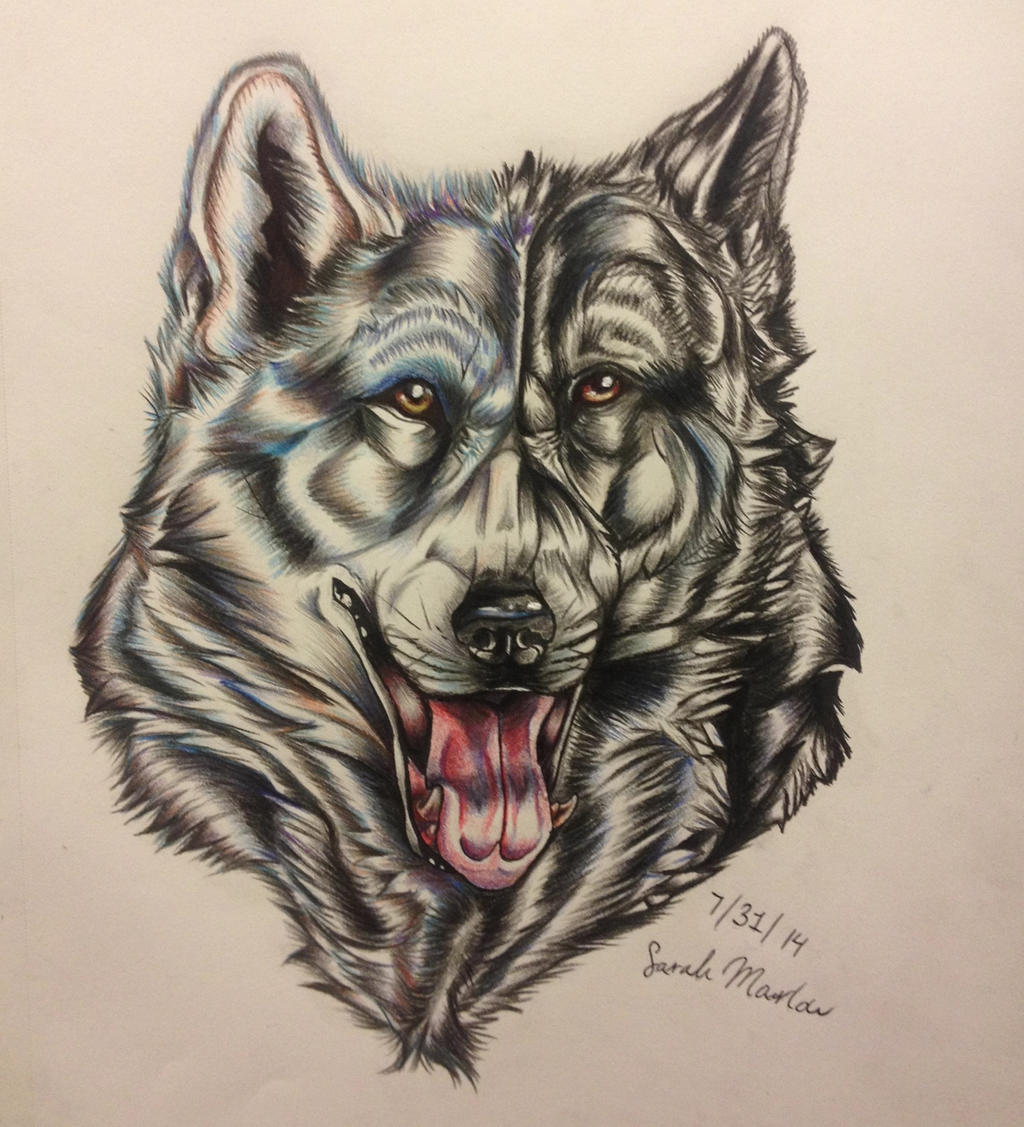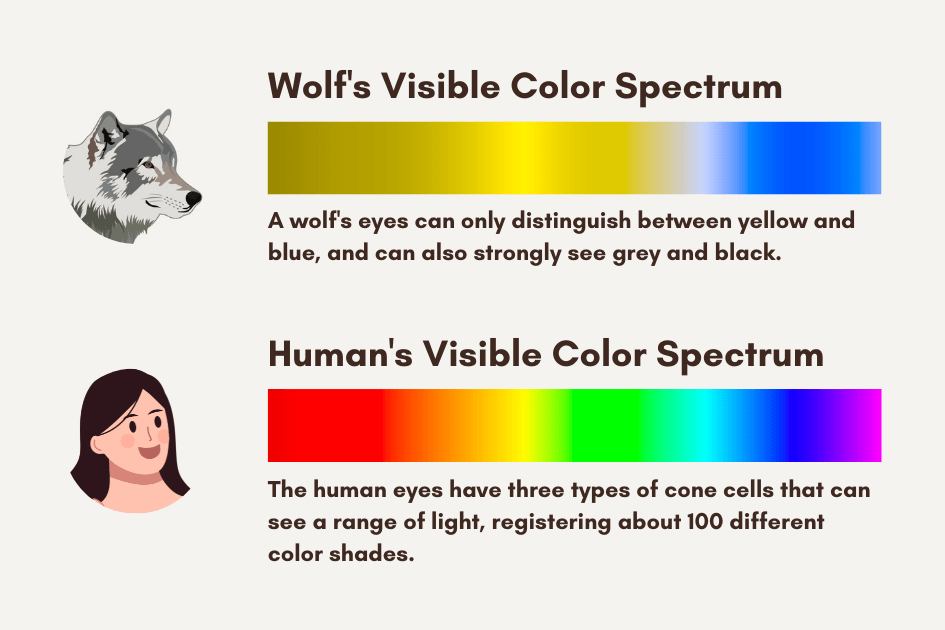
Are Wolves Color Blind? [What Colors Do Wolves See?]
Are Wolves Color Blind? Can Wolves See in the Dark? Do Wolves Have Good Eyesight? How Far Can Wolves See? Are There Any Animals That Are Color Blind? Wrap-Up Have you ever watched a wolf in the wild, their eyes ablaze with a keen, discerning intelligence, and wondered: what does the world look like through those eyes?

The Wolf 02 Free Stock Photo Public Domain Pictures
It is true that we see more colors than some animals. Your pet dog and cat sees fewer and weaker colors. Their view of the world is made of pastel colors. However, some animals see colors we cannot. Spiders and many insects can see a type of light called ultraviolet that most humans cannot see. Other animals, like snakes, are able to see.

Are Wolves Colorblind? (Can They See Color?)
Are wolves truly colorblind, or do they have some level of color vision? Wolves are fascinating creatures that have captured the imaginations of humans for centuries. One question that often arises is whether or not wolves are truly colorblind, or if they have some level of color vision. This article will explore the scientific research and.

Are Wolves Colorblind? ???? (Answered) WildLifeFAQ
Many people wonder, "Are wolves colorblind?" This question arises from common misconceptions and limited public understanding about color vision in animals. In this article, we will delve into the world of wolves, exploring their visual capabilities and unraveling the truth about their color perception.

Colorblind by Alue360 on DeviantArt
By Chris / May 6, 2021 Wolves can see color, but they don't see the same colors as humans do. Instead, they only differentiate between yellow and blue colors and have worse color receptors than humans, and they have stronger receptors for grey and black. But wolves don't rely on their eyesight as some other animals do.

Can Wolves See Colors? Are Wolves Color Blind?
People who are color blind can only see certain colors, depending on which type of color blindness they have. Red-green. The types of red-green color blindness fall into four different categories. Protanopia (aka red-blind) - Individuals have no red cones. Protanomaly (aka red-weak) - Individuals have red cones and can usually see some.

Colorblind Painter Luna Wolves
Color blindness or color vision deficiency (CVD) is the decreased ability to see color or differences in color. The severity of color blindness ranges from mostly unnoticeable to full absence of color perception. Color blindness is usually an inherited problem or variation in the functionality of one or more of the three classes of cone cells in the retina, which mediate color vision.

European grey wolf Wolves are stunningly beautiful creatur… Flickr
Yes, wolves can have blue eyes. In fact, all wolf pups have blue eyes when they're born. The first few weeks of a newborn wolf pup's life, they'll have blue eyes. This is because the figment in their eyes hasn't fully developed.

Wolves
Wolves are not considered colorblind because they can still view colors. However, there's a big difference between their color range and that of humans. This is due to the lack of cone receptors cells in the eyes that are responsible for processing light. The lack of cone receptor cells makes wolves dichromatic, as opposed to trichromatic humans.

Wolf Free Stock Photo Public Domain Pictures
Wolves are not completely colorblind, but they are unable to see colors in the same way that humans are. Wolves are able to see yellow and blue colors but are unable to distinguish between red and green. Only 3 % of retinal cells in dogs are cone photoreceptor cells, the cells responsible for processing colors.

Are Wolves Color Blind BLINDS
There are three types of red-green color blindness: 1. Deuteranomaly. Most people who are red-green color blind have this type. An atypical green cone pigment causes the condition, which makes green and yellow appear red. Colorblind people with this variation may also have difficulty perceiving purple and blue.

Are Wolves Color Blind BLINDS
The answer is no, wolves do not see color. Even though wolves cannot perceive as many hues as we do, they do not see the world in black and white. Wolves have dichromatic eyesight, which allows them to see variations in two hues. This article will discuss the colors that wolves can see and those that they cannot.

Miley speaking out about saving the wolves Shameless, Things to come
Color blindness has several causes: Inherited disorder. Inherited color deficiencies are much more common in males than in females. The most common color deficiency is red-green, with blue-yellow deficiency being much less common. It is rare to have no color vision at all. You can inherit a mild, moderate or severe degree of the disorder.

FileWolves in Norway.jpg Wikimedia Commons
According to the research, it is believed that wolves are partially colorblind and have only blue and red photoreceptors in their eyes. It implies they can smoothly distinguish the difference between blue and red or red and yellow but cannot discern yellow from green or orange from red.
/cdn.vox-cdn.com/uploads/chorus_image/image/64721773/GettyImages_157527152.0.jpg)
WOLVES
If you have color blindness ( color vision deficiency ), it means you see colors differently than most people. Most of the time, color vision deficiency makes it hard to tell the difference between certain colors. Usually, color vision deficiency runs in families. There's no cure, but special glasses and contact lenses can help people see.

Why Do Wolves Have Pointy Ears & Why Aren't They Floppy?
A wolf can perceive the shades blue, yellow, and grey. What color vision do not wolves have? Green and red hues are invisible to wolves. Wolves, for instance, could perceive red as a shade of brown. A wolf sees orange and green as having a yellowish tint. Looking at an antique photograph with fading colors resembles how the wolf sees this world.